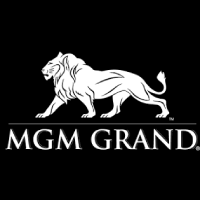CORPORATE EVENT
PLANNING
Use Our Pricing Wizard to Get a Quote on Your Event in 5 Minutes






The Ultimate Guide to Las Vegas Corporate Event Planning: From Concept to Execution
Are you looking for an all-in-one guide to planning corporate events? Look no further! This article will provide an in-depth overview of the corporate event planning process, from concept to execution. From developing an idea to creating a budget, we’ll cover all the details to ensure your corporate event runs smoothly. Get ready to learn the ultimate guide to corporate event planning – from concept to execution.
Brainstorming Ideas for Your Corporate Event
To plan a corporate event, start by brainstorming ideas for its theme. What is the purpose of your event? Does it have a specific message or meaning? Consider using a common buzzword in your event planning, such as ‘fun,’ ‘vibes,’ or ‘feel-good.’ Additionally, choose a date and time for your corporate event. Select a convenient time for attendees but also avoid scheduling it during peak seasons, such as the summer vacation or Christmas holidays. Consider the type of audience you are catering to and pick a date that falls within that timeframe. Next, organize the event yourself. Create a tentative schedule and map out which rooms will be used. This will help ensure the event runs smoothly and everyone has an enjoyable experience. Choose an entertainment or keynote speaker for your corporate event who can capture your audience’s attention with their speech or performance.
Creating a Budget and Outlining Goals
Corporate event planning is an exciting yet challenging endeavor. Before you jump into it, make sure you have a clear idea of the goals and objectives of corporate event planning. This will help you outline a budget and plan the scope and timeline of your event project. You should also assess the appropriateness of using an outside vendor or in-house team to complete the project. This way, you can estimate how much time and money you will require for corporate event planning. The more planning you do upfront, the more successful your event planning venture will be. Remember to monitor and review your event project regularly to ensure its success. With planning and monitoring, corporate event planning can be a memorable experience for you and your attendees.
Venue Selection and Scheduling
When planning corporate events, it is essential to identify the right venue. Factors to consider include the venue’s size, layout, and facilities. These factors can help with planning for event logistics, such as venue capacity and event setup. Also, choose a suitable time for your corporate event based on traffic patterns and other factors, such as event timing for social media posts. The event timeline should be consistent with your budget, objectives, and desired outcomes. Finally, plan for adequate security and catering for your corporate event. Ensure all details are finalized well in advance to avoid last-minute headaches.
Inviting Guests and Promoting the Event
Corporate event planning is a complex process that involves planning, organizing, and marketing the event. It can help your business strengthen its brand presence and image, connect with new customers and potential partners, and generate leads and sales. However, planning a corporate event takes considerable time and effort. It’s best to start planning the event a year in advance. To avoid last-minute problems, you should plan the event to include all details, such as catering, decorations, and marketing. This way, you can be sure that everything is taken care of properly. By planning, corporate event planning can be successfully executed and maximize its potential to ensure its success.
Hiring Vendors and Professional Services
Before planning any corporate event, it is essential to identify the type of event you are planning and select the appropriate vendors. This will ensure that your event is well-organized, budgeted, and executed efficiently. Once you have selected the vendors, it is vital to plan and organize the event in an effective and efficient way. This includes planning the event timeline, venue selection, catering, entertainment, and other logistics. You must also choose professional services that can help complete the event successfully. This includes planning the event logistics, staffing, marketing, and other aspects of the event. After planning the event, it is essential to monitor and review it to ensure it is successful. You must follow up with your vendors and professional services to ensure optimum results.
Event Set Up and Decorations
One of the essential aspects of corporate event planning is ensuring that the event venue and decorations are perfect. This includes selecting a venue that will accommodate your event, choosing the correct decor for your event, and ordering any necessary decorations. It is also essential to plan staffing for events and ensure all staff members are familiar with corporate event planning procedures. You must also order catering services in advance to avoid last-minute problems. After setting up the venue and decorations, it is vital to market your corporate event by organizing publicity materials, social media marketing campaigns, email marketing campaigns, etc. Finally, you must follow up with event attendees to ensure they had a positive experience and are planning to attend future corporate events.
Utilizing Technology for Maximum Effect
Technology is a powerful tool for event planning and management. With the help of technology, event planning and management becomes much easier. In this era of social media and the internet, event planning has become more interactive and dynamic. You can create a customized event calendar, track event attendance, manage sponsors, and use various online tools. If you plan events using technology, you can reduce the need for human interaction at events. Besides, it will help you save time and money. So, why not use technology to improve your event planning process? By doing so, you can ensure optimum results from corporate events.
Managing the Day of the Event
Organizing a corporate event is a complex process; planning the event well in advance is vital to ensure it goes off without a hitch. Start with planning the event’s overall theme and objectives. This will help you narrow the event’s scope, focus on the essential aspects, and avoid unnecessary details. Once you have decided on the event’s overall theme and objectives, start planning its logistics. Decide on the venue and date, event budget, catering arrangements, etc. In addition to planning the event’s logistics, you must ensure that the venue is fully prepared. Ensure all materials are ready at the venue, such as table covers, cutlery sets, chairs, etc. Also, keep track of details of an event during the day so that nothing goes wrong.
Follow Up and Evaluation
As an event planning manager, your job involves planning and executing corporate events of all types. While planning the event, you must check various aspects, such as catering and venue management, marketing campaign, budget management, etc. But one of the most vital aspects of event planning is post-event follow-up. Having a well-defined plan for post-event activities such as thank you cards, floral arrangements, and so on is essential. A good follow-up plan will help ensure your event is successful and memorable for everyone involved. Once the event is over, it’s vital to evaluate your event by conducting surveys or feedback forms. This can help you know what went well and what could be improved for future events. Keep track of events with detailed event documentation such as event schedules, budget details, logistics planning, and other relevant documents. This will help you plan for future events quickly and efficiently.
Leveraging the Results for Future Events
Corporate event planning is the process of planning, organizing, and executing events for a corporate entity. It involves planning conferences, trade shows, and even conventions. Organizing corporate events consists in creating the event budget, identifying the event venue and other related logistics, creating event schedules and agendas, hiring the right talent for your event, developing marketing materials and campaigns, designing the event logo and branding, planning the event publicity, and forecasting food and beverage costs. With corporate event planning, you can leverage past events’ results so that future events are even more successful. Corporate event planners can make informed decisions about upcoming events by tracking event results and analyzing them in-depth.
Our
SERVICES
Menu
Final Thoughts
The planning process for corporate event planning is exciting as it allows you to structure a memorable event in which both management and employees can get involved. To ensure a successful event, it’s essential to plan and put in place a solid team of event professionals. Technology has made corporate event planning easier, from planning the venue catering options and social media management. This guide covers all the essentials of corporate event planning and shows you how to plan and execute the perfect event. Here at Snap Events, we offer top-quality event planning services in Las Vegas, NV,
Let’s get moving.
SNAP EVENTS is ready to serve you. We’ll do all the work and YOU take all the credit. We are your boots on the ground in Las Vegas and around the world.
- 101 Convention Center Drive Las Vegas, NV 89109
SPECIAL OFFER
Last Chance, Fill Out Our Pricing Wizard Now for an Instant Quote!
Why Wait on Slow, In-Experienced Event Coordinators. Save Time and Money. Get Your Quote Today!

- Home
- About Us
- Contact Us
- Privacy Policy
- Terms of Service